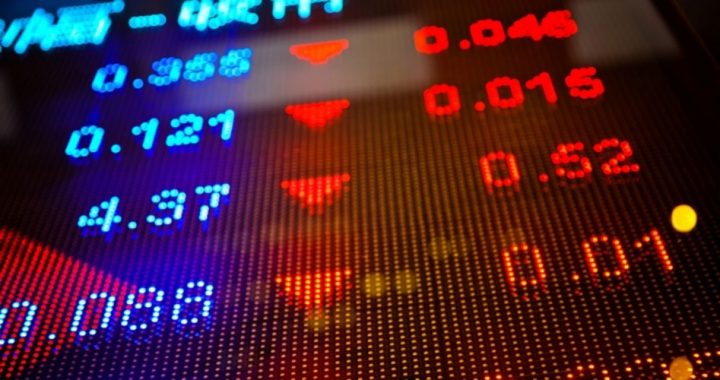
When an obscure advisory committee announced last Wednesday that the U.S. Treasury would have to borrow billions to fund Trump’s tax reform program, the stock market pitched headlong into a selloff, dropping Thursday, Friday, and early into Monday. Before the selloff, the Dow was approaching 26,300, but by the close on Friday it had lost 760 points. The rout continued into Monday, with the Dow down more than 1,200 points from Wednesday’s high.
Much handwringing by commentators blamed the selloff on various technical factors: The market is overbought, it couldn’t continue to make new highs without a correction, it had been 400 days without so much as a three percent correction, etc., etc. Few if any discerned the real cause: The vast overstatement by that obscure committee of the impact of tax reform on the nation’s yearly deficits through 2020.
That committee, known as the Treasury Borrowing Advisory Committee (TBAC), meets quarterly with the U.S. Treasury to offload its opinions on the country’s financial future. On Wednesday, this group of worthies said that it was likely that the Treasury would have to go to the bond market and sell nearly a trillion dollars’ worth of new debt each year for the next three years in order to make up for the lost revenues thanks to Trump’s tax reform. Specifically, the TBAC estimated that the Treasury would be forced to raise $955 billion through the sale of new bonds this year, $1.083 trillion next year, and $1.128 trillion the year after.
That’s a total of $3.2 trillion in new issues coming to market in the next three years, enough to spook stocks into a sharp and continuing selloff. For some, the concept is hard to grasp: When the supply of anything (including new U.S. debt) increases, the demand for it goes down. Prices consequently fall. Here’s the twist: When the price of a bond falls, its yield — the interest the bond pays compared to its price — increases. When it increases a little, the stock market ignores it. In September, the yield on the 10-year Treasury note was 2.05 percent. The yield jumped on Thursday to 2.722 percent, a breathtaking rise of two-thirds of a percentage point. In the bond market that’s huge. The yield on that note jumped further on Monday, to 2.85 percent, putting additional pressure on stocks.
The only problem with all this is that the TBAC has way overstated the need for the Treasury Department to issue all those new bonds. When tax reform was being considered, the impact on federal revenues was estimated to be approximately $1.5 trillion, and that would be spread over the next 10 years. When economists at the Wharton School at the University of Pennsylvania took a look at tax reform, it estimated that it would add $2 trillion to the national debt, again over 10 years.
But the obscure TBAC (acting in its advisory role only) said the Treasury Department would have to inundate the global bond market with more than $3 trillion in less than three years.
Just who is on that committee, and by any chance do any of them happen to have a particular axe to grind concerning President Trump and his plans for banks? Let’s look.
There are 17 members on the committee, including representatives from JPMorgan Chase; Morgan Stanley; Goldman, Sachs & Company; Citigroup; BNY Mellon; Barclays; and Bank of America. Each of them has a vested interest in advising the U.S. Treasury Department simply because Treasury will look to them to sell those new issues. But those entities also have a political axe to grind as well. In July 2016 the liberal Huffington Post reported that
The party platform approved at the Republican National Convention in Cleveland offers official support for reinstating the Glass-Steagall law, which separates riskier securities trading from traditional commercial banking. The move would require busting up the six largest banks in America.
A year later, on May 5, 2017, Investors Business Daily reported, “President Trump’s hint this month of a breakup of big Wall Street banks such as JPMorgan Chase (JPM), Bank of America (BAC), Goldman Sachs (GS) and Wells Fargo (WFC) hit their stocks hard.”
On July 25, Yahoo reported that a rule that would allow bank depositors to sue banks instead of going to arbitration was quickly nullified by Republicans, though the threat remains.
It’s easy to surmise that the sudden and drastic overstatement of the need for borrowing was deliberate, perhaps a warning to the president not to get too cocky over the success of his tax reform plan.
It’s likely that stocks will recover sooner rather than later when the real threat has been discerned to be far less than reported by the TBAC.
But real concerns remain. What if the economy doesn’t grow enough to offset at least partially the revenue shortfalls caused by tax reform? Will the Federal Reserve (which has been offloading its own massive hoard of government bonds for many months now) be forced to reverse course and start buying up bonds that can’t be sold elsewhere? Will investors finally discover the real threat that a $20 trillion national debt has to the future purchasing power of the dollar and consequently the purchasing power of bonds they might buy? Will interest rates rise more quickly than anticipated, forcing the Treasury to pay more to persuade investors to buy its bonds?
For the moment, it appears that the overstatement by the big bank-controlled TBAC was a warning shot across Trump’s bow about who really is in charge in Washington, at least when it comes to financing the government.
Image: Nikada / iStock / Getty Images Plus
An Ivy League graduate and former investment advisor, Bob is a regular contributor to The New American magazine and blogs frequently at LightFromTheRight.com, primarily on economics and politics. He can be reached at [email protected].



